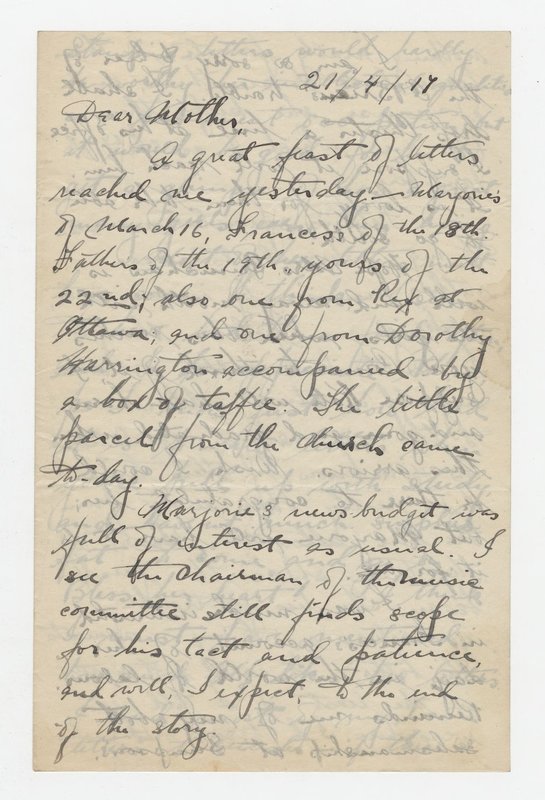France 1917
Bernard Freeman Trotter received notice of his deployment in December of 1916 and wrote of trench warfare as early as January 10th and 19th, 1917. His first remarks of poetry from France are also in January, when he writes that “the mess is the only available place with a comfortable temperature, and it is seldom sufficiently vacant for poetic flutterings.” The front lines not only had an effect on the tone and material of his poems, but also the physical time and space he had to write while fighting.
A contemporary author, Alice Corbin Henderson, comments on poetry and war in a short piece for a journal published by the Poetry Foundation. She states that “Clearly what we instinctively demand of the poet today is not a justification of the ways of man to God, but a justification of the ways of man to man.” Modern scholar Tim Cook remarks that "The language of the war - so brilliantly captured by the war poets - is of suffering, pity, and trauma."
In a poem published very shortly after the beginning of the war in the journal Current History, Trotter puts this into practice. He writes "And the red menace that should bring the scorn / of ages on the Kaiser's name and shame / And crown their city with a deathless fame."



